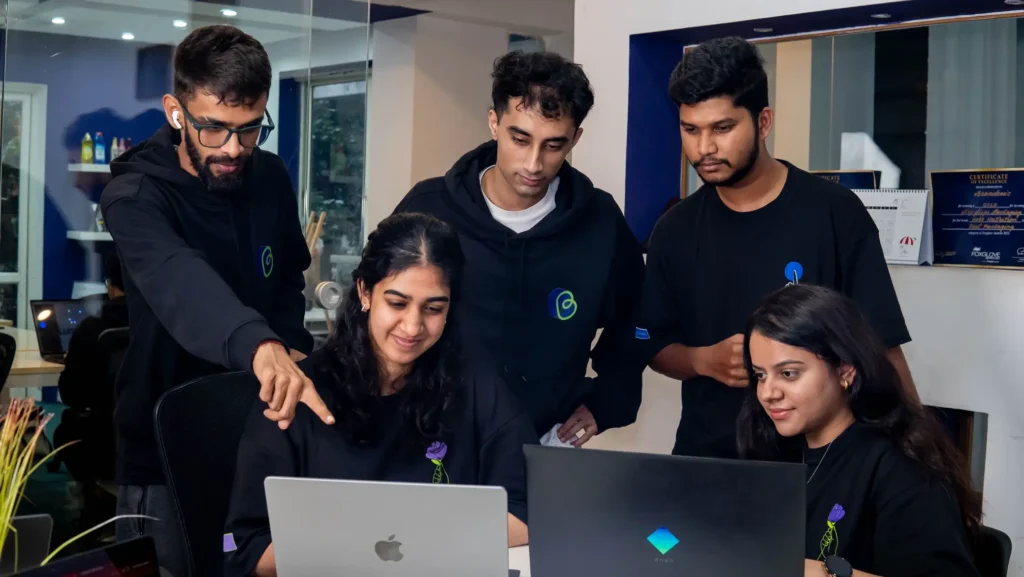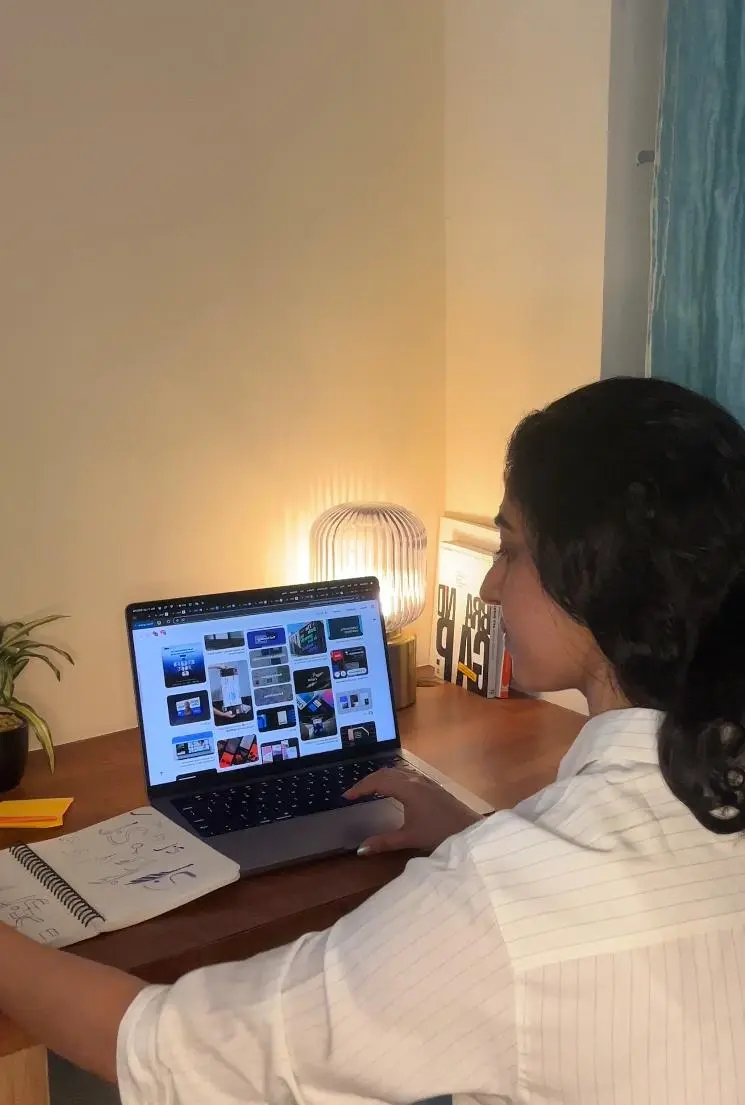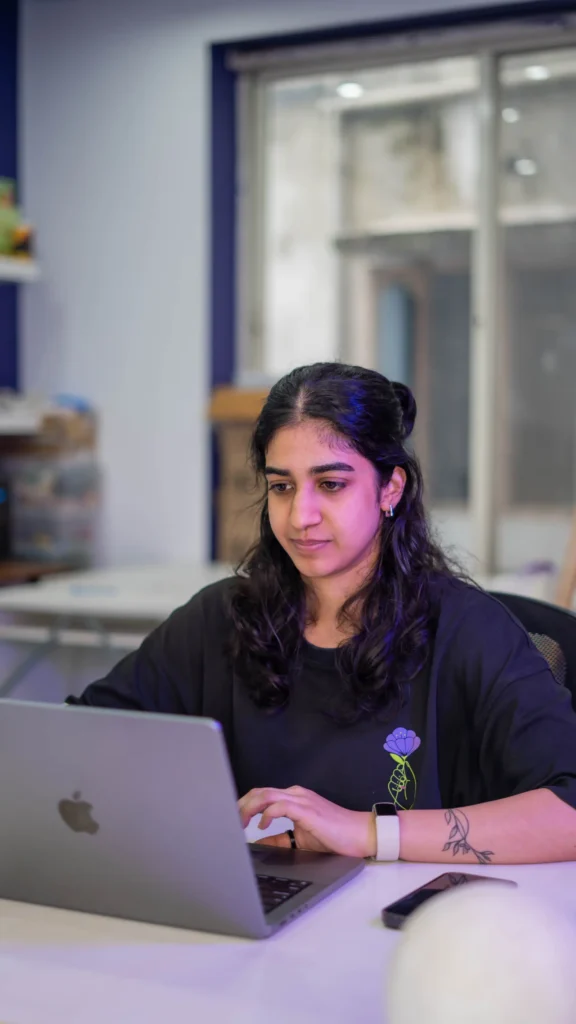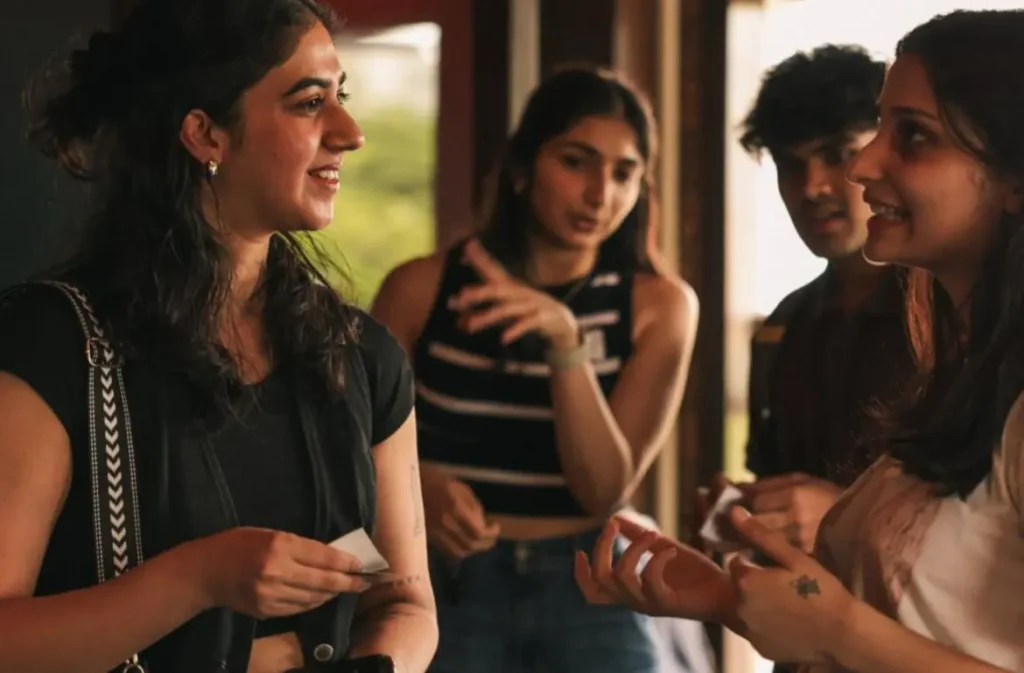
When I first entered the design industry, I felt like an outsider in a world of complex rules, color theories, and unspoken guidelines. Many of my peers seemed to know exactly what they were doing, while I struggled to find my footing. My vision clashed with the structured design “rules” that dominated the industry. Despite my passion for creativity, I found myself questioning if I could really find my own creative voice within such a rigid framework.

Freelancing in design often appears glamorous on social media, where it’s portrayed as a path to freedom, independence, and creativity. The truth, however, is a little different. Freelancing meant juggling multiple projects, meeting tight deadlines, and managing diverse client expectations—all while trying to build my own unique style.
The hustle was real: constant client meetings, late nights, and the relentless drive to make a living. Far from the romanticized view of working in cozy cafes, freelancing pushed me to my limits. Yet, it was this hustle that taught me resilience and paved the way for me to create designs that truly resonated with brands. I evolved from simply delivering projects to crafting meaningful designs that aligned with each brand’s unique identity.
Design school gave me a strong foundation in colour theory, grid systems, and typography, but it didn’t prepare me for real-world challenges like managing client feedback, navigating shifting expectations, and staying inspired. I learned quickly that working with clients is unpredictable; feedback often required me to revise my vision entirely.
Every project required adaptation, as each brand I worked with had its own distinct personality and voice. Balancing these different styles and expectations was both challenging and rewarding, giving me a breadth of experience that design school couldn’t offer. I came to realise that creating impactful designs went beyond technique it required empathy, adaptability, and a deep understanding of each brand’s goals.
Freelancing can feel like a continuous balancing act—especially as a new designer. I spent countless hours refining my craft, testing new design techniques, and striving to deliver work that both satisfied clients and felt true to my vision. Managing multiple clients at once taught me how to stay organised, respond to feedback constructively, and prioritise my own creative growth amidst the demands of freelancing.
Through this process, I learned a critical lesson: design isn’t just about aesthetics. It’s about creating designs that resonate, evoke emotions, and serve a purpose. Freelancing pushed me to develop a style that clients would recognize and return for, fostering long-term partnerships instead of one-off projects.

Early in my career, I thought success in design meant following every industry rule and sticking closely to traditional design principles. I tried to fit each design into a structured grid, carefully adhere to colour theory, and abide by conventional composition techniques. But the more I adhered to these rules, the more restricted I felt, as though I were losing the very essence of what inspired me to design in the first place.
The turning point came when I allowed myself to experiment and break some of those “rules.” I began exploring new colours, unstructured compositions, and trusting my instincts. This shift helped me discover my authentic style—a voice in design that felt truly mine. I realised that the best designs often come from pushing boundaries and allowing creativity to flow without constraint.

As I leaned into my personal style, I noticed a significant change in my work dynamics. Projects became more than isolated tasks—they transformed into long-term collaborations. Clients appreciated my unique perspective, seeing me not just as a designer for hire, but as a trusted creative partner who could add value to their brand. My goal became to create designs that went beyond visual appeal, aiming to communicate a brand’s message in a way that would leave a lasting impression.
Today, I work with brands from diverse industries—from tech to FMCG to create designs that tell a story, communicate values, and foster connections. My mission is to produce visuals that not only look good but also resonate with people on a deeper level, making a real impact.
If I could offer one piece of advice to fellow designers, it would be this: design isn’t just about following the rules. The fundamentals are essential, but true growth comes from experimentation and trusting your instincts. Success isn’t about rigidly adhering to principles; it’s about creating work that reflects who you are.
So, don’t be afraid to break boundaries and carve your own path. Design is about adapting, understanding your own voice, and building something meaningful. Every late night, challenging project, and client critique brings you closer to your creative voice. Embrace the journey, and remember that each step brings you closer to finding the unique style that’s truly yours.
Reflecting on my journey, I see how every challenge, late night, and moment of doubt has brought me to where I am today—a place where I can confidently say I’ve found my creative voice. From initially struggling with the “rules” of design to embracing my own unique style, I’ve learned that the journey is as important as the destination.
I’m not just here to create beautiful visuals; I’m here to craft designs that tell stories, communicate values, and make a lasting impact. To every designer out there: remember, the hustle is real, but so is the reward. Embrace the journey, break a few rules, and most importantly, never stop searching for your creative voice.
Creative blocks are inevitable, especially when working across diverse industries. When I feel stuck, I take a break, seek inspiration from unrelated sources, or try experimenting without pressure. This often leads to unexpected breakthroughs.
The transition came from focusing on creating designs with meaning. Clients began to see the depth in my work, which opened up more collaborative opportunities. Consistently understanding and addressing each brand’s unique needs helped clients view me as a creative partner rather than just a designer.
Absolutely. Rules are essential for learning, but some of the most impactful designs come from breaking those rules and trusting your instincts. It’s about balancing fundamentals with creativity to create something uniquely yours.
The biggest lesson I’ve learned is that design is about resonance, not just aesthetics. This mindset has guided me to create designs that connect on an emotional level, not just visually.
Don’t be discouraged! I felt like an outsider, too. Focus on what excites you and stay true to your authentic style. Design is a diverse field with space for individuality. Trust the process, stay curious, and bring your unique perspective to the table.
This site is protected by reCAPTCHA and the Google Privacy Policy and Terms of Service apply.